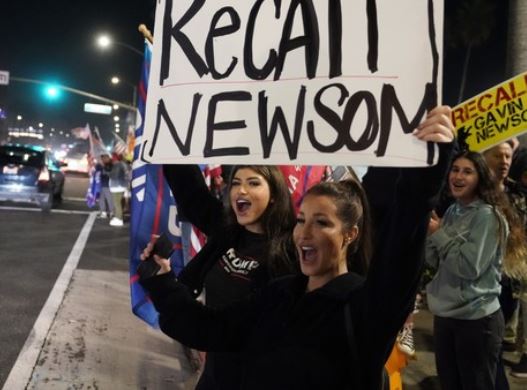
Mar 12, 2021 | The Blog
 For over ten years I’ve enjoyed giving my custom to a large, family-run hardware store in my neighborhood.
For over ten years I’ve enjoyed giving my custom to a large, family-run hardware store in my neighborhood.
It’s a rambling and rather cluttered store, where someone has to lead you through a maze of shelves before pointing you to the product you need (nuts, bolts, screws, washers, etc.) for the final selection of the right type or size of fastener or drill bit that you are looking for.
I liked everything about this store, from the personal interaction with the elderly couple who run it, to the smell of cardboard, lubricant and rubber wafting in the air.
Then, less than a year ago, a big-box home-improvement chain store opened up not two hundred meters away from the friendly hardware folks. Something on the scale of a Lowe’s or Home Depot in the US or a Leroy Merlin in Europe and elsewhere. This has been an only-too-common occurrence in the past two or three decades. The old mom-and-pop stores are driven out of business by the big-box behemoths.
The size of the new place is staggering, with oodles of space, high ceilings and long aisles with countless arrays of shelves. There’s even a bar with a seats and tables for those who want to grab coffee and a croissant (the store opens at 07:00), buy their supplies and start on their project before 09:00.
Predictably, the inventory is mind-blowing, the parking lot extra-large and prices reasonable.
It was a given that I would soon take my business there and, indeed, I’ve been a happy customer—until today.
This morning I bought a special repair putty by Loctite. It comes in three separate baggies each containing 5 grams of product. You mold it by hand into the required shape and it will promptly harden.
When I got home, I removed the three baggies from their wrapper and realized that the contents of two of them was rock-hard and virtually unusable.
So, two hours later I was back in the store, waiting in line before the returns counter.
When my turn came, the young customer-service woman made no less than seven phone calls to find out which department was in charge of these items. I did explain to her that this product was hanging from a Point of Purchase (POP) display situated before the checkout, but apparently it didn’t help.
She eventually issued a refund and pointed me to the Paint Dept. to get a replacement product if I still wanted one. From her expression, I got the feeling she was happy to get rid of me and the Paint Dept. was just a means to that end. The HVAC Dept. would have also done just fine to get me out of her sight.
Just over 10 years ago, I was in a similar situation at a Lowe’s in the southeastern US, but the outcome was the very opposite. The employee helping me was about my age—an older guy, that is—and knew his way around the system. He took care of my issue and made sure I was on my way without delay and satisfied with the solution he’d found.
But for all I know, things may be have changed across the pond, too, in this second decade of the third millennium.
Anyway, the “paint guy” was not at his workplace, but I found him stocking shelves from an aerial work platform. When he descended electrically to my level, he hastened to show he didn’t want any part of this and claimed that items like my repair putty were scattered around the store in strategic locations to be bought on impulse but did not fall under any particular department. Not his own, at any rate.
I gave him my best “why should I care?” look and told him I just wanted a replacement item that was entirely usable and I could not care less about the way his employers ran their business.
All he could suggest, however, was that I personally inspect the POP displays by the checkouts and squeeze every single packet until I found one that was still usable.
“Thank you very much for nothing”, I said and went out in a foul mood headed, of course, to the old hardware store.
Incidentally, one of the banks where I hold an account operates much the same way. They employ a bunch of minimum-wage young people who are terrified of escalating a customer-service issue to a supervisory level.
They will waste time trying to deflect your enquiry in the hope that you eventually give up. They sound bored and demotivated—almost catatonic— but they have nowhere to go in terms of career options.
The bank has chosen to open its service center in a depressed area where jobs are scarce and wages are low, but so is the average quality of applicants in that catchment area.
Better candidates normally balk when they’re offered a job that requires moving there, so the standard of service is and will remain lousy.
But if you ask the bean counters who supported running the customer service from there, I’ll bet they still think it was a genius idea.

Feb 27, 2021 | The Blog
 Chi ha seguito sui media USA la serie di eventi politici che hanno scosso l’America negli ultimi mesi avrà probabilmente incontrato una serie di termini di non facile interpretazione.
Chi ha seguito sui media USA la serie di eventi politici che hanno scosso l’America negli ultimi mesi avrà probabilmente incontrato una serie di termini di non facile interpretazione.
E sarà forse ricorso invano all’aiuto dei dizionari.
Niente di preoccupante, visto che anche non pochi giornalisti italiani (e prima fra tutti la triste e penosa ANSA) dimostrano di essere in serie difficoltà nel gestire lo slang politico.
Qui ne affronto alcuni esempi, cercando di spiegarne il significato, proponendone una traduzione in italiano e inserendoli anche nel contesto in cui è probabile che siano stati usati.
Gaslighting
Si tratta della pratica impiegata da forze politiche o dalla stampa (la differenza a volte non esiste) per manipolare l’opinione pubblica diffondendo quelle che in italiano chiameremmo “notizie false e tendenziose” fino al punto in cui gli individui oggetto di tale pratica iniziano a dubitare delle convinzioni che avevano finora maturato.
Il termine deriva dal titolo di un vecchio film americano (Gaslight) degli anni 40, in cui un diabolico marito tenta di far impazzire la moglie (Ingrid Bergman) convincendola che le sue percezioni della realtà sono frutto della sua immaginazione.
La differenza tra Spin (vedi la voce seguente) e Gaslighting è che “spin” consiste nel fornire una spiegazione alternativa (e di parte) per determinati eventi. Gaslighting è invece la creazione di una realtà falsa e artificiale, un vero e proprio lavaggio del cervello. Quest’ultima espressione potrebbe rappresentare una valida traduzione in italiano, ma anche il sopracitato manipolare [l’opinione pubblica] può funzionare.
Abbiamo visto un esempio di Gaslighting nell’attività coordinata degli organi di stampa (CNN, MSNBC, New York Times, Washington Post e molti altri) e dei Democrat nel definire come ‘insurrezione armata’ la manifestazione del 6 Gennaio 2021 che vide solo una minoranza dei partecipanti invadere il Campidoglio di Washington. Contemporaneamente, gli stessi politici e giornalisti definivano ‘manifestazioni pacifiche’ le
rivolte che per mesi avevano devastato città come Seattle e Portland, e tutto questo nonostante la diretta TV mostrasse sullo sfondo le evidenze di scontri violenti, sparatorie, incendi e saccheggi.
Spin
E’ l’attività degli uffici stampa, dei portavoce dei politici e dei giornalisti-attivisti, quando questi ultimi decidono di fornire una mirata e strumentale interpretazione della notizia, piuttosto che limitarsi a riportare i fatti. Un esempio è dato dalle contorsioni verbali in cui si sono prodotti certa stampa e lo staff di Joe Biden per giustificare il penoso livello di entusiasmo generato dal candidato durante la sua inesistente campagna elettorale.
In italiano ci sarebbe un verbo che può descrivere questa pratica (rigirare), ma temo che per il sostantivo ci si debba accontentare di gabola, maneggio o travisamento.
Può anche darsi che qui Rocco Casalino ci possa aiutare a trovare il termine giusto.
Whataboutism
Il termine, che risale agli anni 70, si riferisce a una tecnica usata nella retorica politica. Quando si rivela impossibile contestare le accuse dell’avversario, si accusa lui o altri di essere degli ipocriti per aver commesso le medesime azioni. In altre parole, si giustifica la propria condotta sostenendo che non c’è niente di male, visto che tanti altri (e magari anche lo stesso accusatore) fanno altrettanto.
In tempi recentissimi, la tecnica è stata usata dai sostenitori di Trump per difendersi dalla pioggia di accuse seguita al famigerato ‘assalto’ al Campidoglio.
“What about Antifa?” è una frase che si è sentita più volte. (“E allora Antifa?”)
Qui non mi azzardo a proporre una traduzione del termine Whataboutism, ma mi limito solo a tradurre una frase che lo evidenzia.
Astroturf
Astroturf è un’azienda americana che produce erba artificiale per stadi, campi da tennis ecc.
E allora, che cosa c’entra la politica?
Un attimo di pazienza. Occorre stabilire prima di tutto un collegamento con l’espressione (più nota) grassroots, che sta a indicare un movimento popolare spontaneo, un’iniziativa che nasce dagli stessi cittadini ed elettori (letteralmente dalle radici).
Quindi, se grassroots definisce un movimento nato spontaneamente dalla gente, Astroturf (che è erba artificiale) indica una finta iniziativa popolare, un sostegno da parte della gente che in realtà non c’è, perché è inventato e sintetico. (E purtroppo ci dobbiamo accontentare di questi aggettivi per la traduzione).
Torniamo ora, per portare un esempio, alle striminzite folle che assistevano ai pochi e imbarazzanti comizi di Joe Biden, prima che decidesse di farla finita del tutto con quelle pagliacciate, alle quali solo i suoi fedelissimi (compresa CNN e gli altri soliti sospetti) tenevano gioco.
Il supporto popolare per Joe è stato un chiaro esempio di Astroturfing, anche se non so quanti ci hanno veramente creduto.
Dumpster fire
Il dumpster in America (in Inghilterra lo chiamano skip) è un contenitore metallico di dimensioni superiori al cassonetto. In Italia si chiama tecnicamente cassone scarrabile.
In gergo, dumpster fire indica una situazione disastrosa, un evento negativo che è ulteriormente peggiorato (spesso per incapacità o indecisione nel gestirlo), come è appunto il caso di un cassone di rifiuti che va a fuoco.
Un esempio di dumpster fire fu il primo dibattito televisivo tra Trump e Biden, degenerato in rissa anche per l’ingerenza del moderatore, il giornalista-attivista Chris Wallace, che si mise a discutere animatamente col presidente, malgrado avesse promesso prima del dibattito di mantenere un profilo basso.
Come tradurre dumpster fire?
Parapiglia, caos, pandemonio, papocchio, frittata e chi più ne ha più ne metta.
Peccato che nessuno di questi evochi adeguatamente l’immagine colorita e drammatica di un maleodorante incendio di rifiuti.

Gen 30, 2021 | The Blog
 Gavin Newsom, il governatore della California, ha appena allentato le restrizioni legate al Covid-19, mentre una petizione popolare per revocare il suo mandato ha già raggiunto 1,2 milioni di firme, appena 300.000 al di sotto del traguardo di 1,5 milioni da raggiungere entro il 17 Marzo.
Gavin Newsom, il governatore della California, ha appena allentato le restrizioni legate al Covid-19, mentre una petizione popolare per revocare il suo mandato ha già raggiunto 1,2 milioni di firme, appena 300.000 al di sotto del traguardo di 1,5 milioni da raggiungere entro il 17 Marzo.
Non è la prima volta che Newsom è oggetto di una campagna di richiamo, anzi è la sesta in due anni.
Inviperiti per le restrizioni del lockdown (che Newsom ha sfacciatamente trasgredito in più occasioni) i Californiani sperano di mandare a casa l’impopolare governatore di fede Democrat ed eleggerne un altro nei prossimi mesi.
Lo stato più ricco e popoloso d’America (40 milioni di abitanti) vuole finalmente riaprire i ristoranti e le attività commerciali, nonostante la gestione Newsom abbia posizionato la California all’ultimo posto per l’efficienza delle vaccinazioni anti-Covid, seguita a breve distanza dallo stato di New York, il cui governatore Cuomo è compagno di partito di Newsom e soffre di un analogo calo di popolarità.
In materia di pandemia, ambedue i governatori sono stati colti in fallo nascondendo le reali statistiche del contagio allo scopo di giustificare le misure restrittive adottate. (Tutto il mondo è paese.)
Chiaramente preoccupato per l’inarrestabile movimento popolare che vuole mandarlo a casa, Newsom ha quindi deciso di sollevare molte delle attuali restrizioni per salvare la poltrona.
Facendo seguito a quanto sopra, la Contea di Los Angeles (10 milioni di abitanti e un’area grande quanto l’Umbria e il Molise messi insieme) ha giusto riaperto le attività di ristorazione all’aperto, ma limitandone la capacità al 50%. E visto che il Super Bowl, la finale del campionato del National Football League, si terrà il 7 Febbraio, ha deciso di vietare l’accensione dei televisori nei locali.
L’idea balzana vorrebbe contrastare il fenomeno dei Super Bowl party, in cui gruppi di tifosi assistono alla partita al ristorante, ma non considera che in questa maniera—oltre a penalizzare la categoria dei ristoratori che è già allo stremo—si incentivano i party casalinghi, dove le restrizioni del 50% della capacità sono difficili da far rispettare.
Di vincoli stupidi, assurdi e controproducenti ne stiamo sperimentando anche in Italia, ma l’accanimento delle autorità californiane tocca probabilmente i vertici del ridicolo a livello mondiale.
A conti fatti, Newsom probabilmente finirà per liberare l’ufficio e uscirne con la tradizionale scatola di cartone contenente cimeli e oggetti personali. Ma da noi la rimozione di un governatore (cioè del presidente di una regione) è molto più complessa e si presta ai soliti giochi delle tre carte italici cui siamo purtroppo abituati ad assistere.

Dic 9, 2020 | The Blog
 Twenty-five years ago—as I lived in Vienna—I would often visit Budapest, which was reasonably close and could be reached in less than 3 hours by car.
Twenty-five years ago—as I lived in Vienna—I would often visit Budapest, which was reasonably close and could be reached in less than 3 hours by car.
There I met a young Italian entrepreneur who had recently opened a large jeanswear store in an old Budapest warehouse. He was doing good business, with both young buyers and retail stores, who would buy his high-quality denim merchandise at wholesale prices.
The problem in Hungary at the time was that many businesspeople would stiff you on the payment and simply refuse to settle their bills after they had taken delivery of the goods.
If you did not speak Hungarian—and my Italian acquaintance didn’t—you had a hard time even reporting the fact to the police. Meanwhile, the delinquent debtor would hang up on you if you called him or refuse to see you if you showed up at their place of business.
In those wild-East days, you either took it on the chin and wrote off the bad debt or found more creative ways to collect the monies due you.
Finding himself confronted with an elusive debtor, the young Italian entrepreneur was introduced to a couple of XXL-size Chechens who would take care of the debt collection by entirely extrajudicial means for a reasonable cut on the sums they retrieved.
This one time, they agreed to meet the Italian at a given landmark in the city center and he would then lead them to the debtor’s private address.
The Chechen duo showed up in a battered old Lada trailing a cloud of blue smoke. Their client motioned for them to follow and drove through Budapest to a quiet residential road lined with 100-year-old buildings.
He then walked over to an apartment building’s front gate, a massive wooden affair next to which stood a panel with a dozen or so intercom buzzers. The Chechens gestured for him to ring the debtor’s apartment, but the wily man promptly hung up when he realized it was the Italian calling from downstairs.
The Chechens shrugged and walked back to their Lada. They popped the trunk and extracted two chainsaws, which they promptly started and took to the front gate. In a matter of seconds, the wooden panels were lying on the ground in shreds. The two goons then climbed the stairs and pulverized the apartment’s door the same way.
Inside, they found the debtor’s family huddled in the sitting room and paralyzed with fear. With their two chainsaws burbling on idle, they didn’t have to say a word. Moments later, they were back downstairs, chainsaws turned off and stowed in the trunk, the debt paid in full.
They quickly took their own cut, gave their Italian client the rest of the money and were gone in a squeal of tires before the Hungarian Rendörség (police) ever had a chance to intervene.
Both the Italian jeanswear wholesaler and the delinquent debtor learned a valuable lesson that day.

Nov 17, 2020 | The Blog
J ust two months ago, I noted that Justice Bader Ginsburg’s passing was going to be a game changer in the 2020 presidential race.
ust two months ago, I noted that Justice Bader Ginsburg’s passing was going to be a game changer in the 2020 presidential race.
Since then, a succession of events has occurred that would make a roller coaster ride pale in comparison.
Election Day on November 3 came and went. While the late evening of the very same day showed a substantial Republican surge and a Trump lead in battleground states, voter tallies painted a very different picture the next morning.
Joe Biden was in the lead and most of the mainstream media rushed to call the race a Democrat win.
A number of pundits and left-wing politicos urged Donald Trump to concede, while the totals in some states hadn’t been officially tallied yet. (Recounts are under way as we speak.)
Many clues pointed to some kind of counting error—and quite possibly even to massive voter fraud.
Having closely followed the presidential campaigns of both candidates and witnessed the huge gap in popular enthusiasm between Trump and Biden, I couldn’t reconcile the official results with the people’s pulse on the ground.
Since then, several things have happened.
On the Dem side, the calls for Trump to concede have multiplied. Dems promptly created a Biden “transition team”, which reportedly already made calls to a number of world leaders. (The astute reader will remember that such a call prompted the arrest of Gen. Michael Flynn in early 2017, but he was a member of Trump’s administration and the mainstream media did not bat an eyelid.)
Breaking with tradition (again), ex-president Obama repeatedly called for Trump to concede, even though a groundswell was building up that will likely overturn the results of the election in several states when the full extent of the fraud is revealed.
After years of calling Trump’s presidency “illegitimate” on account of a fictional collusion with Russia; after a bogus impeachment based on a phony whistleblower; after four years of yelling “not my president” and comparing Trump to a number of Nazi criminals (from Hitler himself to Goebbels), the Dems and the mainstream media (redundancy alert!) have acted on cue to roll out a “Time to Heal” campaign.
The idea is to sweep all partisan animosity under the rug and play a big happy family from here on down.
Sadly, even far-left elements of the Dem party are pushing back against this drive, as they oppose any negotiation with Republicans and even fantasize about establishing a Truth and Reconciliation Commission to apportion blame and mete out justice for the “crimes” purportedly committed by the Trump administration.
The pro-Trump website TGP has published a collage of newspaper headlines containing the urgent message “Time to Heal”, which is being pushed by the Dems and has been enthusiastically accepted by a non-discerning media.
The wonders of a free press!
Meanwhile, the outcome of the presidential election is still in flux. Down-ballot, the much-touted “blue wave” has failed to materialize and the Dems have lost House seats and failed to gain control of the Senate.
But stay tuned. It ain’t over yet.

Ott 20, 2020 | The Blog
Il termine Sorpresa di Ottobre (in inglese October Surprise) fu coniato negli Stati Uniti 40 anni fa e appartiene al gergo politico-giornalistico. Esso si riferisce a eventi o rivelazioni sconvolgenti che, guarda caso, balzano agli onori della cronaca proprio nel mese precedente alle elezioni presidenziali.
Negli USA le elezioni presidenziali si tengono ogni Quattro anni, quelle della Camera ogni due anni e quelle del Senato ogni due, ma limitatamente a un terzo dei 100 senatori (2 per ogni stato dell’Unione) i quali hanno un mandato di 6 anni. Le elezioni per la Camera si tengono contestualmente a quelle presidenziali e di nuovo nel Novembre di due anni dopo, nel qual caso sono chiamate Midterm Elections.
 La Sorpresa di Ottobre ha una lunga tradizione che alcuni fanno risalire al 1840. Fin da allora si è sempre trattato di rivelazioni scioccanti (talvolta esagerate o perfino false) ma anche di autentici avvenimenti di rilevanza mondiale, come la Crisi di Suez e la Rivoluzione Ungherese (tutte e due del 1956) che hanno influenzato la scelta degli elettori.
La Sorpresa di Ottobre ha una lunga tradizione che alcuni fanno risalire al 1840. Fin da allora si è sempre trattato di rivelazioni scioccanti (talvolta esagerate o perfino false) ma anche di autentici avvenimenti di rilevanza mondiale, come la Crisi di Suez e la Rivoluzione Ungherese (tutte e due del 1956) che hanno influenzato la scelta degli elettori.
In tempi abbastanza recenti, una Sorpresa di Ottobre fu l’annuncio di Henry Kissinger (Ottobre 1972) che i negoziati per la pace in Vietnam erano vicini a una conclusione positiva. A pochi giorni di distanza, il Presidente Nixon fu rieletto con un ampissimo margine, che solo in parte fu dovuto all’annuncio del suo Consigliere per la Sicurezza Nazionale.
Saltiamo all’Ottobre 2016, che ha visto le sorprese succedersi a un ritmo incredibile durante le battute finali della corsa per la Presidenza USA da parte di Donald Trump e Hillary Clinton.
Il 7 Ottobre venne alla luce una vecchia registrazione risalente al 2005, nella quale Trump raccontava, in un linguaggio scurrile, alcune sue prodezze sessuali. Molti lo diedero per spacciato il giorno stesso.
Contemporaneamente, il sito WikiLeaks iniziò a pubblicare una serie di e-mail il cui contenuto metteva in cattiva luce la Clinton, mentre i servizi di sicurezza americani—sempre nella stessa data—segnalavano gli sforzi della Russia per influenzare l’esito delle elezioni presidenziali, senza però chiarire a favore di chi.
E solo pochi giorni prima del voto, il Direttore dell’FBI Jim Comey dichiarò per iscritto al Congresso di voler indagare a fondo sulla sparizione di decine di migliaia di e-mail della Clinton ritrovate per caso sul laptop usato dalla sua collaboratrice Huma Abedin e da suo marito. Solo pochi mesi prima, Comey aveva deplorato la “trascuratezza” della Clinton, senza però avviare un procedimento a suo carico.
Molti ancora ricordano la tempesta mediatica che ciascuna di queste “sorprese” ha scatenato quattro anni fa e le recriminazioni che ancora non cessano.
Ma oggi, due settimane prima del voto del 3 Novembre 2020, l’evento più sensazionale è la scoperta di una quantità enorme di e-mail e foto appartenenti a Hunter Biden, figlio di Joe Biden, il candidato Dem alla Presidenza. Il problema di Joe è che le mail sembrano tirare in ballo anche lui in più episodi di corruzione ad opera di istituzioni finanziarie cinesi e imprenditori e politici ucraini.
Se il contenuto delle mail fosse confermato come autentico, Joe Biden avrebbe svolto il ruolo del “padrino” in un’impresa criminale che coinvolgeva gran parte della sua famiglia.
A così breve distanza dal voto, anche il solo sospetto di corruzione può costargli caro. Seguendo una prassi ormai consolidata, gran parte degli organi di stampa USA hanno deciso di non affrontare l’argomento a tutela di Biden, ma—come dicono in inglese—the cat is out of the bag.
I prossimi giorni saranno decisivi e i “news junkies” come me stanno facendo scorta di popcorn e noccioline.

 For over ten years I’ve enjoyed giving my custom to a large, family-run hardware store in my neighborhood.
For over ten years I’ve enjoyed giving my custom to a large, family-run hardware store in my neighborhood.









